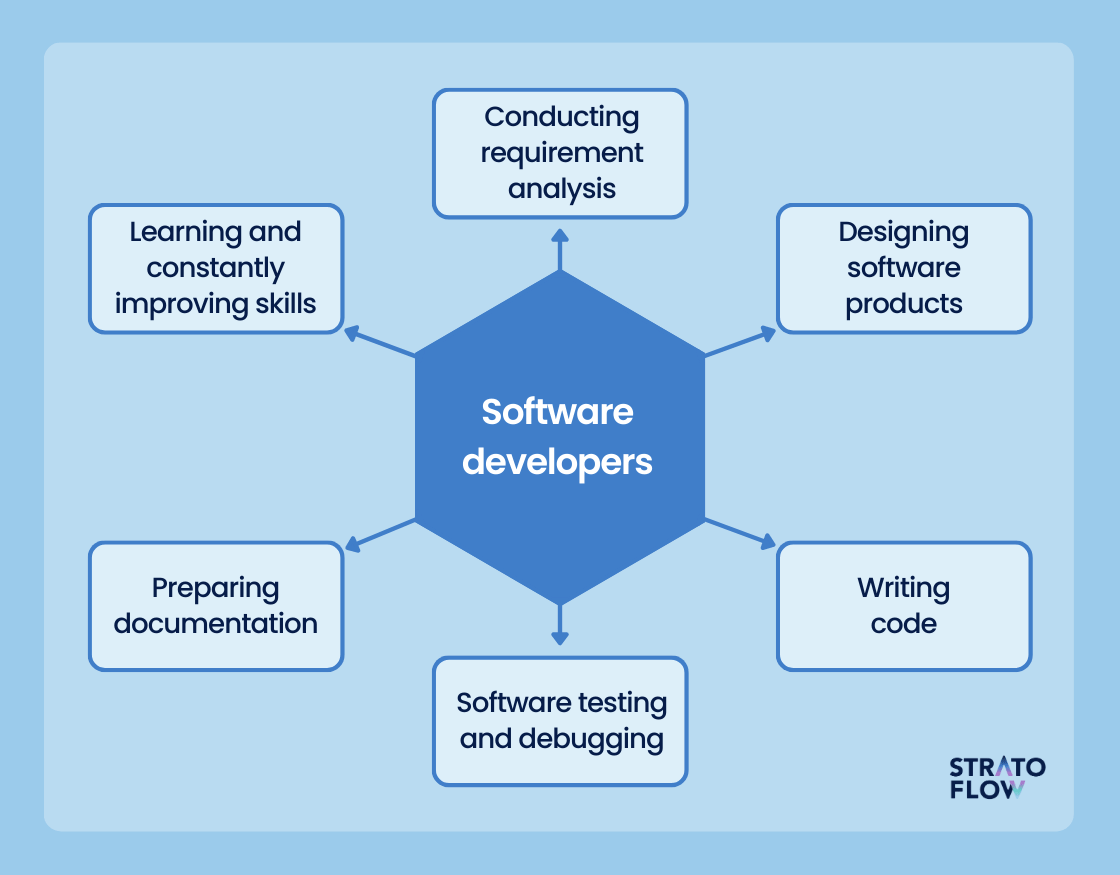Dedicated Developers vs. In-House Teams: Which Is Right for You?
The choice in between making use of devoted designers and keeping an in-house group is a considerable one that can influence the trajectory of your projects and general service strategy. Dedicated developers supply a degree of adaptability and specialized know-how that can be useful for specific, short-term initiatives. Conversely, internal groups add to a natural firm society and a nuanced understanding of lasting objectives. By examining vital aspects such as spending plan, task extent, and wanted control, you can much better establish which strategy straightens with your business requirements. The effects of this selection prolong beyond immediate results-- think about the more comprehensive influence on your organization landscape.
Understanding Committed Developers
The growing need for specialized skills in the technology market has actually led to the appearance of dedicated programmers as a feasible service for numerous companies. These specialists are normally gotten on a task basis, allowing business to take advantage of particular proficiency without the long-lasting commitment connected with full-time hires. Committed programmers are commonly ingrained within a customer's team, providing versatility and scalability to meet task demands.
This version allows companies to access a worldwide ability pool, which is especially advantageous in a quickly advancing technological landscape. Committed developers can be sourced from numerous geographical locations, guaranteeing that firms can locate the right capability at competitive rates. They usually bring a wealth of experience and knowledge, having actually worked with varied tasks throughout different industries.
Moreover, committed designers can concentrate exclusively on the jobs available, enhancing performance and effectiveness. They are outfitted to incorporate seamlessly into existing process, working together very closely with internal groups to attain task purposes. This strategy not just reduces the burden of recruitment and training but also allows organizations to stay active, adjusting swiftly to transforming market demands and technological developments.
Advantages of In-House Teams

Additionally, internal teams have a tendency to have a deeper understanding of the business's goal, values, and objectives. This alignment can improve staff member interaction and inspiration, as staff member really feel much more attached to their job and the organization's success. Furthermore, having a dedicated in-house group enables better positioning of strategies and goals, as these members are constantly concentrated on the company's priorities.
In-house groups additionally facilitate quicker decision-making processes, as they can respond a lot more swiftly to changes and difficulties. The established relationships and experience with business methods allow for streamlined workflows and decreased miscommunication. Inevitably, the combination of a cohesive culture, alignment with organizational goals, and efficient communication makes in-house teams an important possession for lots of companies, especially those seeking to grow long-lasting growth and advancement.
Expense Considerations
When assessing expense considerations, both devoted developers and in-house groups present distinctive economic ramifications for organizations. Engaging committed programmers commonly includes a pay-per-project or hourly rate version, which can be cost-efficient for services with changing project needs. This technique enables for flexibility in scaling sources up or down, making certain that business check it out just pay for the services they require.
On the other hand, in-house groups involve fixed prices, including wages, benefits, and overhead expenditures such as office and devices. While this model supplies higher control and immediate schedule of resources, it might result in greater long-term expenditures, especially if the workload does not validate a full-time personnel.
Additionally, firms ought to take into consideration the covert prices related to recruitment and training of find here internal staff members, which can even more stress spending plans. Sometimes, the moment and sources spent on managing an in-house group can take away from the organization's core company purposes.

Task Monitoring and Adaptability
Task monitoring and versatility are important variables that affect the option between devoted developers and internal groups. Devoted developers generally provide a high degree of adaptability, permitting organizations to scale sources up or down based upon task needs. This agility can be particularly advantageous for businesses experiencing rising and fall work or those seeking our website to introduce quickly. Devoted teams usually have actually established procedures for taking care of tasks properly, leveraging certain approaches like Agile or Scrum, which facilitate iterative progress and flexibility.

Eventually, the choice in between devoted designers and in-house groups depends upon the preferred degree of flexibility and the certain project administration requirements. Firms should evaluate their functional characteristics, project complexity, and source availability to determine which option aligns finest with their tactical objectives.
Making the Right Option
Selecting the right advancement approach-- dedicated programmers or in-house teams-- requires a careful evaluation of numerous elements that line up with a firm's critical goals. offshore software development. Take into consideration the nature of the project. If it demands specialized abilities or a quick scale-up, dedicated programmers might be preferable. Conversely, internal teams can give better continuity and integration with existing personnel.
Next, examine your budget. Devoted developers commonly provide a cost-effective service for short-term jobs, while in-house groups may sustain greater lasting costs as a result of wages, advantages, and overhead prices. Evaluate the level of control and cooperation wanted; internal teams generally foster more powerful communication and positioning with company culture.
Additionally, consider the moment framework. If prompt results are necessary, committed designers can be onboarded quickly, whereas constructing an internal team takes some time for employment and training. Weigh the lasting vision of your company. If continuous advancement is vital, purchasing an in-house group might yield far better returns gradually. Ultimately, the decision rests on an extensive evaluation of these factors, guaranteeing placement with your business's general purposes and operational requirements.
Final Thought
In conclusion, the choice between internal teams and specialized designers pivots on job demands and organizational goals. On the other hand, in-house groups cultivate a cohesive society and deeper positioning with lasting objectives.
The decision between utilizing devoted developers and maintaining an internal group is a considerable one that can affect the trajectory of your tasks and total organization technique.Job monitoring and adaptability are crucial aspects that affect the option between in-house groups and dedicated developers. software development staff augmentation.In contrast, internal teams might stand out in preserving a consistent job management framework due to their knowledge with the company's society and lasting goals. Devoted developers often offer an economical service for short-term projects, while internal groups may incur higher long-term costs due to incomes, benefits, and overhead prices.In verdict, the choice between dedicated programmers and in-house teams hinges on project demands and business purposes